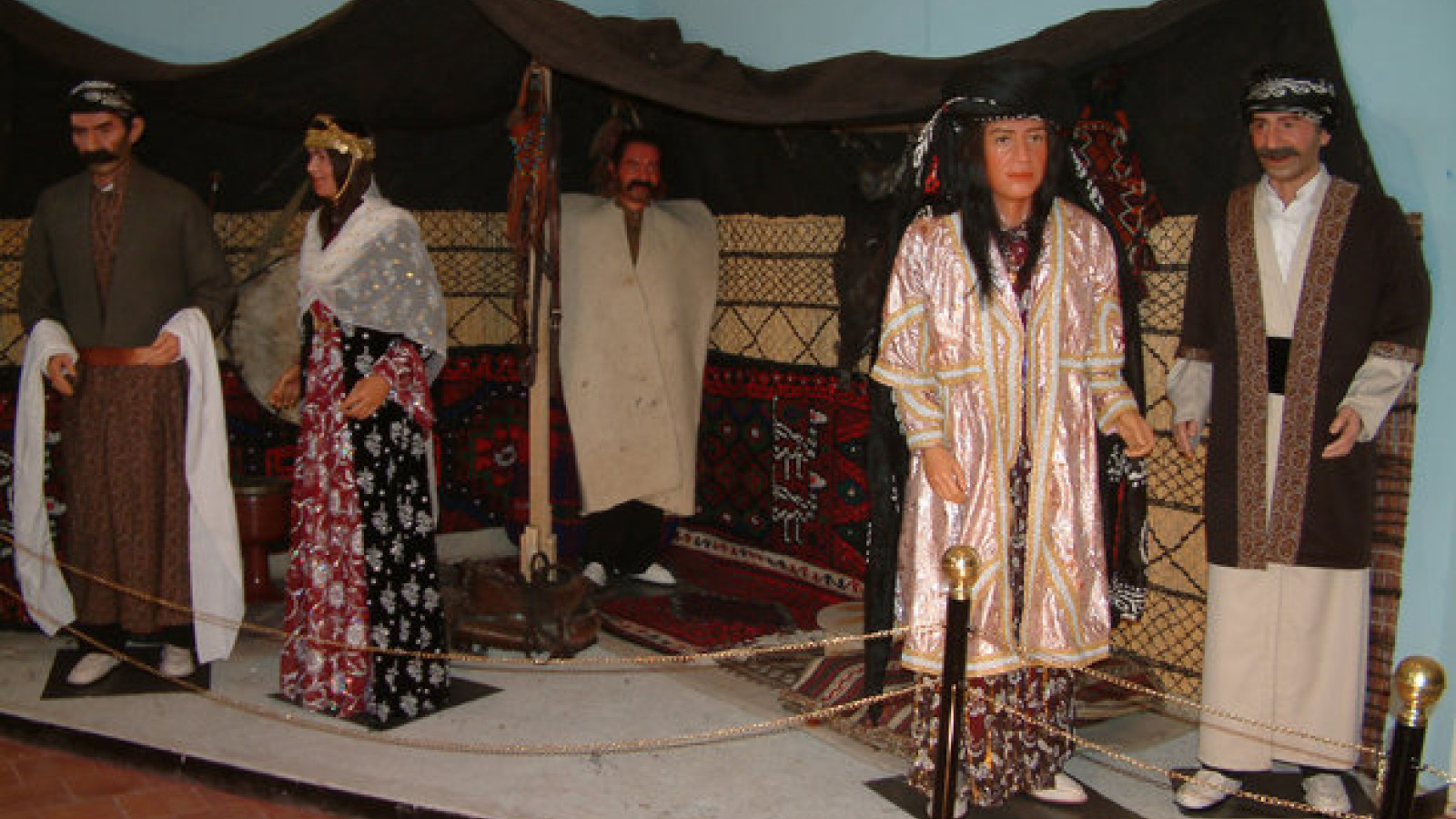
Kermanshah is a frontier province in the west of Iran restricted to two other Kurd provinces that are Kurdistan and Ilam, from the north and south. Lorestan and Hamedan are other neighboring provinces of Kermanshah and this province also shares land borders with Iraq country in the west. The weather of this region is said to be four-season so that each part has unique weather. More than 90% of people in this province are from Kurd ethnic group. The interesting point about Kermanshah clothing is that since it is located between two other Kurdish provinces, there are traces of both styles in this province. Today, using the traditional and local clothes is not so much popular. But in the past women wore two types of clothing one of which was more similar to that of Kurdistan in which they wear a vest-like velvet cloth namely Qua over their long dress that was named Keras. Kermanshah women, especially the older ones, use usually dark colors like black and dark blue. Kermanshah women tightened a light shawl around their waist under Qua that was plain. They also wear a large headdress made of dark silk that was plain without any decoration. In the second style that is more similar to Ilam clothes, the dress is somewhat shorter than Kerass and it reaches to about 10 centimeters above the ankle. This clothing was used without pants with a long black socks. They tightened their headdress over their head considering the Hijab. The lower part of the dress is folded here but Keras was totally simple. They wore simple flat shoes and a vest over the dress that is looser than that of Sanandaj. It reaches to the waist and is embroidered with colorful strips. Kermanshah men in four cities of Paveh, Javanroud, Ravansar and Nowsud wear the same Sanandaji clothing. The people of these cities that is the continuation of Uraman are also Sunni. Kurdish pants are more straight than that of Sanandaj. They wear some thin headdress like a scarf and use Kelash as their shoes. The clothing of people in cities like Sahneh, Kermanshah, Sarab and Kangavar is more similar to that of Laki and Ilami.
